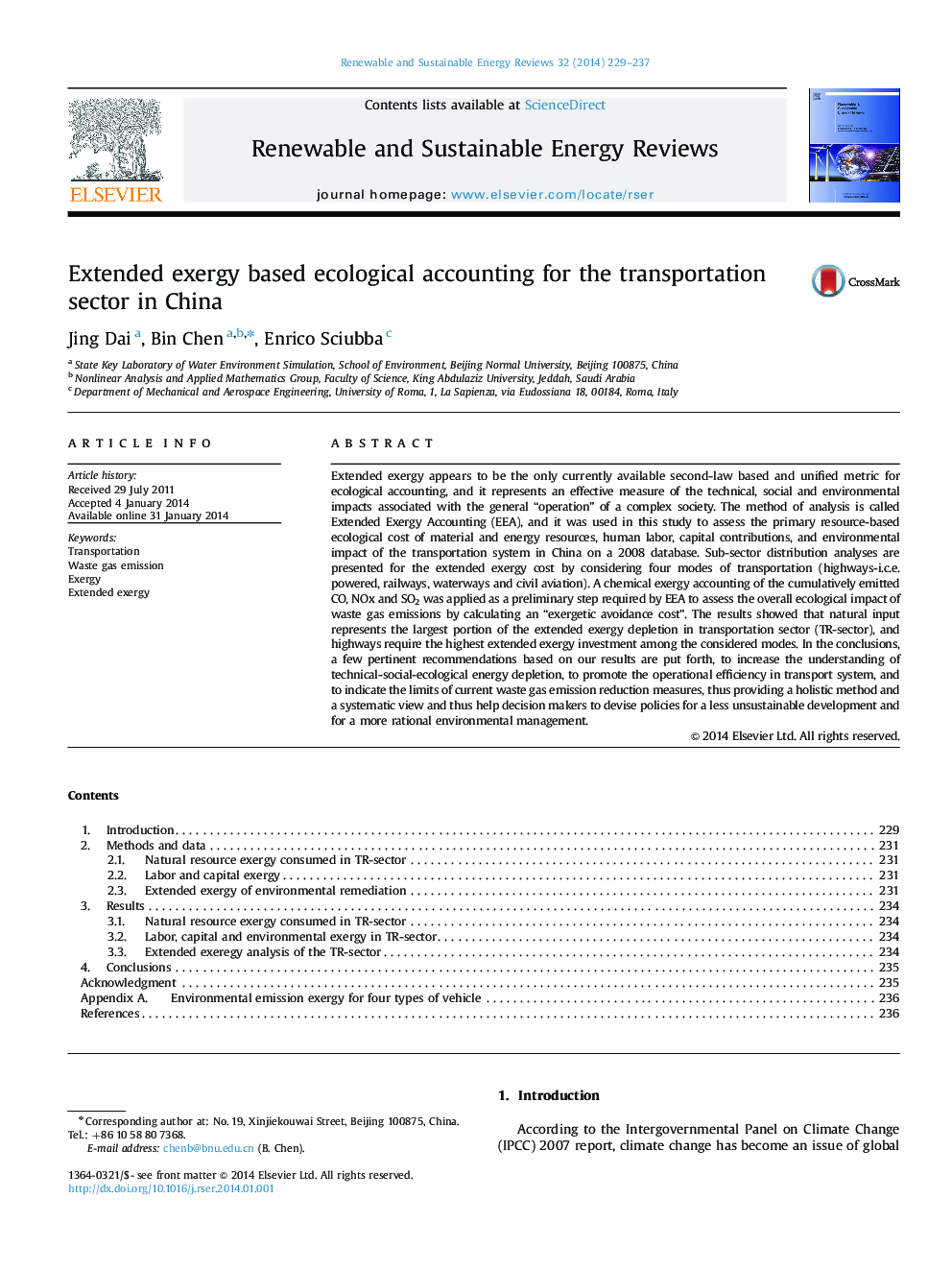| کد مقاله | کد نشریه | سال انتشار | مقاله انگلیسی | نسخه تمام متن |
|---|---|---|---|---|
| 8120067 | 1522353 | 2014 | 9 صفحه PDF | دانلود رایگان |
عنوان انگلیسی مقاله ISI
Extended exergy based ecological accounting for the transportation sector in China
ترجمه فارسی عنوان
حسابداری اکولوژیک بر اساس اکوادور گسترش یافته برای بخش حمل و نقل در چین
دانلود مقاله + سفارش ترجمه
دانلود مقاله ISI انگلیسی
رایگان برای ایرانیان
موضوعات مرتبط
مهندسی و علوم پایه
مهندسی انرژی
انرژی های تجدید پذیر، توسعه پایدار و محیط زیست
چکیده انگلیسی
Extended exergy appears to be the only currently available second-law based and unified metric for ecological accounting, and it represents an effective measure of the technical, social and environmental impacts associated with the general “operation” of a complex society. The method of analysis is called Extended Exergy Accounting (EEA), and it was used in this study to assess the primary resource-based ecological cost of material and energy resources, human labor, capital contributions, and environmental impact of the transportation system in China on a 2008 database. Sub-sector distribution analyses are presented for the extended exergy cost by considering four modes of transportation (highways-i.c.e. powered, railways, waterways and civil aviation). A chemical exergy accounting of the cumulatively emitted CO, NOx and SO2 was applied as a preliminary step required by EEA to assess the overall ecological impact of waste gas emissions by calculating an “exergetic avoidance cost”. The results showed that natural input represents the largest portion of the extended exergy depletion in transportation sector (TR-sector), and highways require the highest extended exergy investment among the considered modes. In the conclusions, a few pertinent recommendations based on our results are put forth, to increase the understanding of technical-social-ecological energy depletion, to promote the operational efficiency in transport system, and to indicate the limits of current waste gas emission reduction measures, thus providing a holistic method and a systematic view and thus help decision makers to devise policies for a less unsustainable development and for a more rational environmental management.
ناشر
Database: Elsevier - ScienceDirect (ساینس دایرکت)
Journal: Renewable and Sustainable Energy Reviews - Volume 32, April 2014, Pages 229-237
Journal: Renewable and Sustainable Energy Reviews - Volume 32, April 2014, Pages 229-237
نویسندگان
Jing Dai, Bin Chen, Enrico Sciubba,
